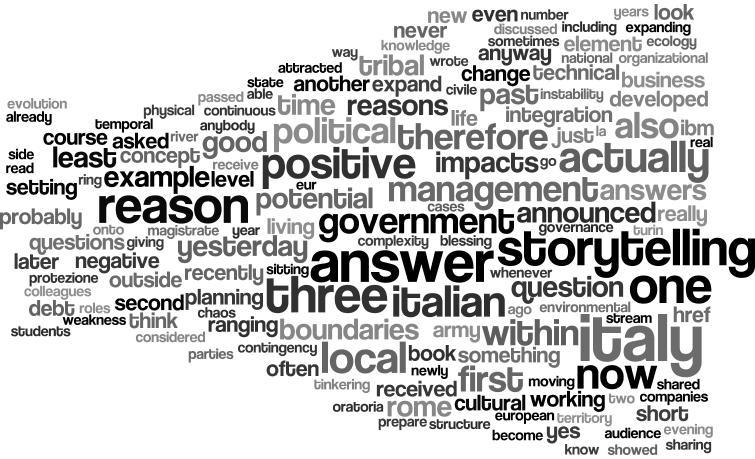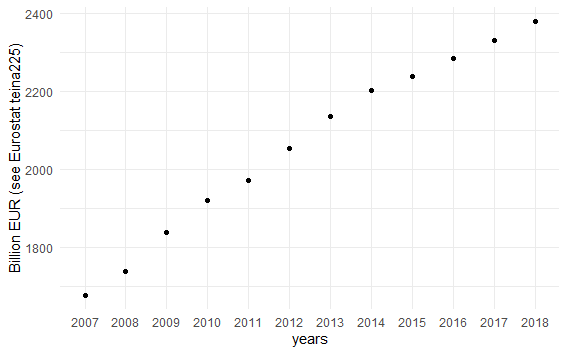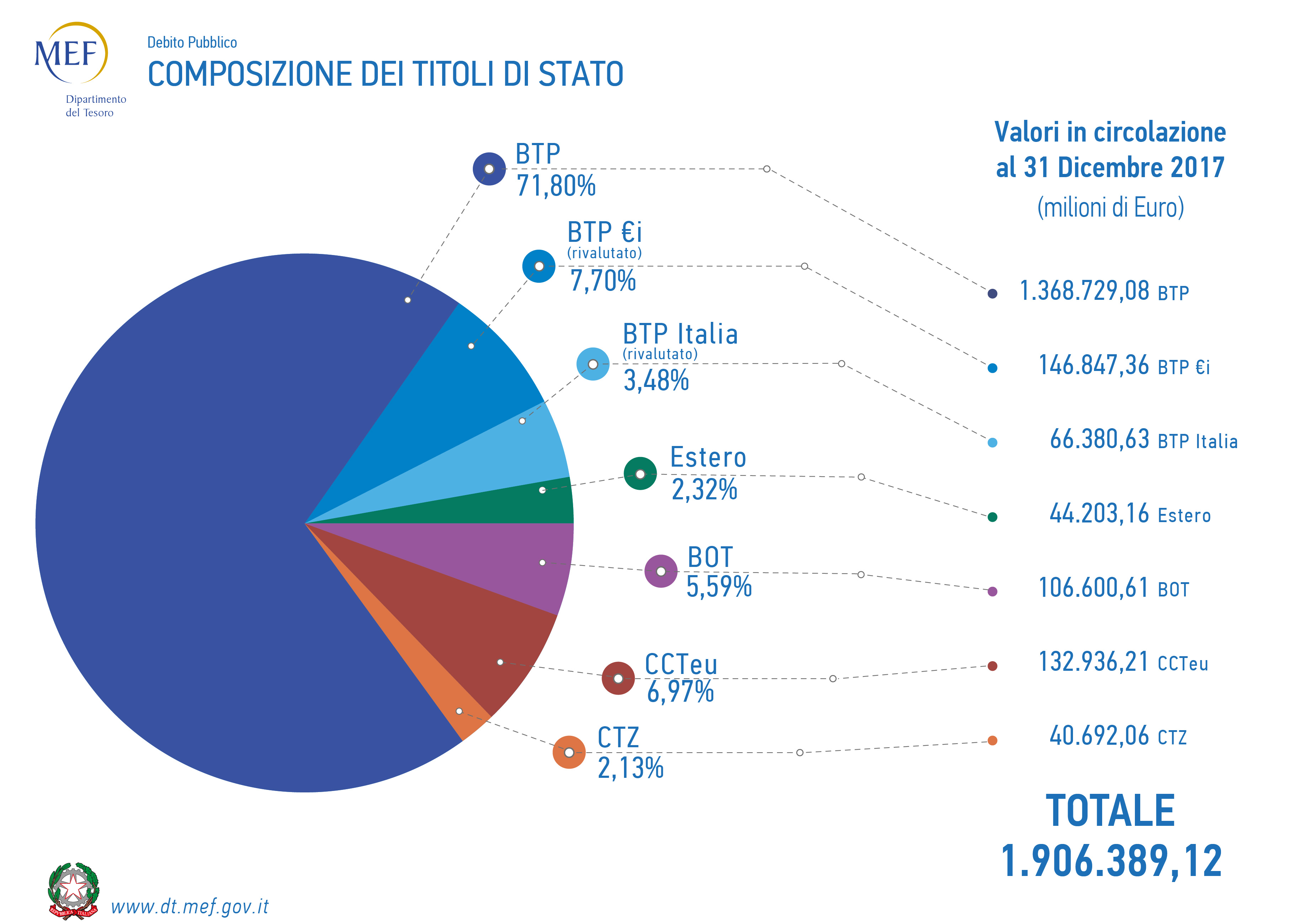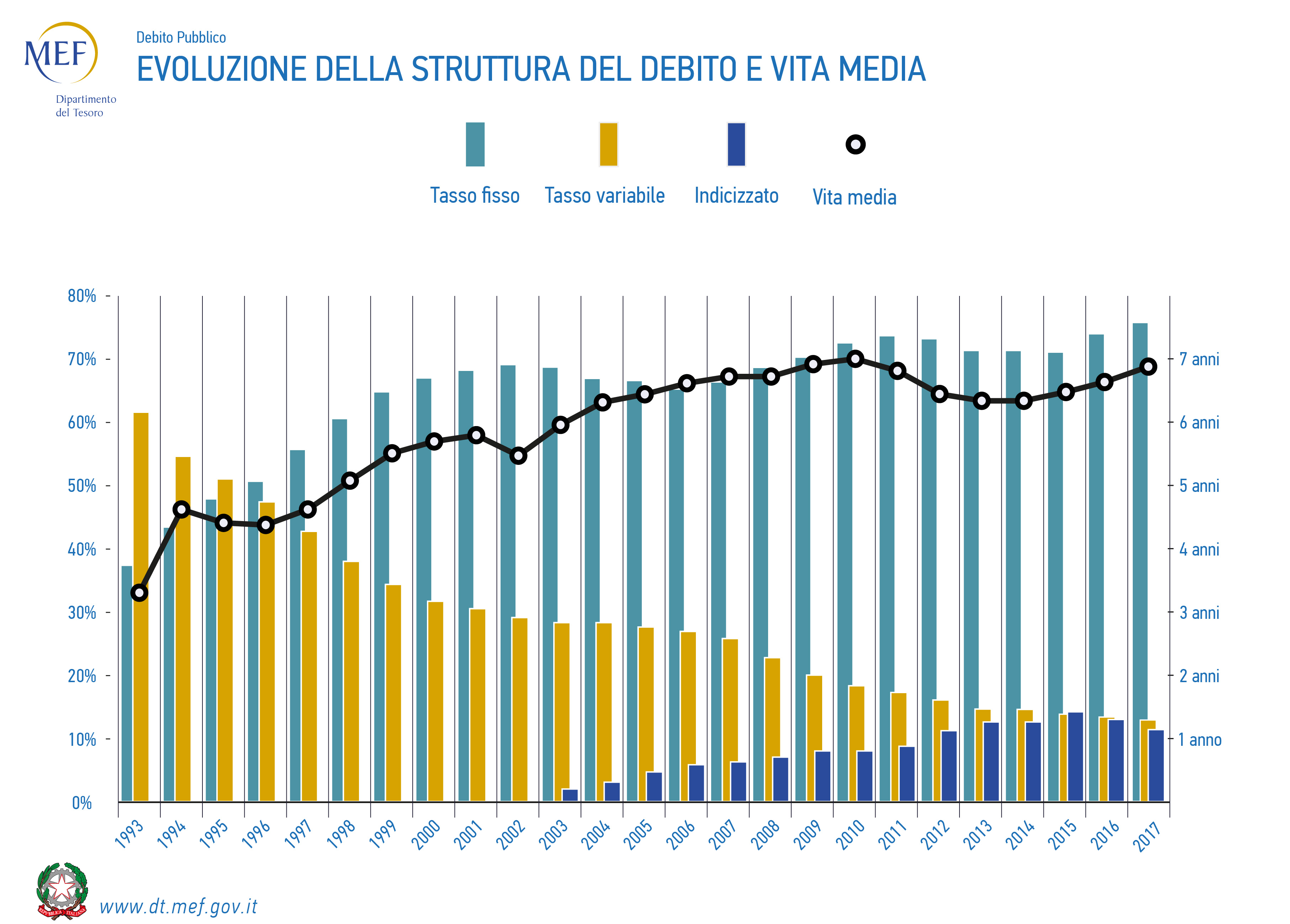Viewed 16266 times | words: 2099
Published on 2020-01-10 14:15:41 | words: 2099

Yesterday I was asked a question: a reason to be positive for 2020 (talking about Italy).
I replied: I have at least three, on the macro-level (i.e. beyond my own personal case).
Before sharing my answers, two small digressions- one on "ecology of question and answer", and one on "storytelling your answers".
ecology of question and answer
I learned to answer questions in various roles ranging from advocacy (now we would say "evangelist"; in politics), support/expert onsite (university, army), bureaucrat (army), consultant and management teacher (business), negotiator (politics and business), beside of course various private life roles.
E.g. in business I often had from my foreign friends and colleagues, including before working in Rome and living in Brussels, de facto requests in meetings and parties to be the one answering questions or giving positions- which, being data-driven, was sometimes disappointing for those asking, as if asked about something that I think requires data, and I do not have enough data, since the late 1980s got used to number crunching impacts, and therefore if my answer is speculative, I say so.
But the way you answer questions is contextual: depends on your audience, the setting where the question is asked, and, yes, the "props" you can use to answer.
I shared in the past more detail on the process, including the delivery, but, as I explained yesterday after giving the answers, it is related to two elements of my experience.
The first one is highlighted within my ProjectManagement.com profile, i.e. focus on "recovery" of projects, programmes, portfolios, and overall change initiatives.
The second one is the importance of storytelling.
storytelling your answers: concept and example
Yesterday evening, after sharing my three reasons, I discussed the concept of storytelling as I developed it in my activities and living and working across Europe.
Yes, in high school I liked to read extra-curricular material on cultural anthropology, the transmission of knowledge.
Which, in cultures lacking writing, meant storytelling and rota learning, but still has a familiar ring- ranging from Quintilianus "Institutio Oratoria" https://en.wikipedia.org/wiki/Institutio_Oratoria, to Truffaut's "Fahrenheit 451" https://www.imdb.com/title/tt0060390.
Now, transmitting knowledge by storytelling implies "tuning" with your audience, and of course the context.
Example: if you ask me about a subject I know something about, I could give you a two-hours lecture, but if we are sitting at a restaurant, I might share first a 30 seconds story, and then expand through interaction (or not expand at all, if I also close those thirty seconds with a riposte to involve others).
selecting the "scope" of your storytelling
Within the framework of my answer yesterday evening, I ruled out the "micro-dimension" (i.e. myself), the "political dimension" (as I am anyway "detaching"), and focused on the "macro-dimension" (i.e. the ecosystem).
When explaining something, I like to do it the "building a cathedral" way, i.e. start with the layer that further architecture will rely on, and then keep layering.
In this case, my answer announced three reasons, and as I think that in Italy we collectively lose touch with reality the higher we go, and the complain about detachment.
The first reason was so on a physical (local) and temporal (now) level- short-term.
The second reason was expanding, physically (national) and temporal (ongoing)- medium-term.
The third reason was further expanding, moving onto the "structural" side of the physical element (the real ecosystem) and time (cultural and environmental sustainability)- long-term.
first reason
Recent investment in new technology, innovation, competence parks in Turin open the doors to new forms of aggregation, and, thanks to the local low salaries (e.g. not too long ago the Dean of the Turin Polytechnic reminded how newly graduates received offers for 900eur/month as an expense reimbursement, vs. 3k or more elsewhere), and the good level of local universities, could attract more foreign companies setting up their "intellectual factories"- ranging from R&D to software factories.
As an example, to go outside the expected (automotive and aerospace), the OGR attracted IBM, and recently it was a announced that students of a creative writing course at Scuola Holden would become part of the DAMS, i.e. receive an official degree; a short while later, it was announced that actually students will receive also training on AI and new technologies by IBM, useful to become then employee of the newly founded IBM centre.
Thereafter, on the same line, also Microsoft made an announcement, while Amazon is already in town with Alexa, and Google recently announced another local partnership.
If you consider that many locals talk about moving abroad, but never do (in the past routinely passed over the information whenever I received requests for IT specialists, but even when offered four times the rate that they received in, say, Rome, eventually never accepted)...
... it is an opportunity, as a local attempt to create a joint humanities+technology master attracted just 9 candidates, and local small-medium companies did not send anybody, and thefore the first year, 2020, was cancelled.
Therefore, at least for now, this could be a positive element, if you consider the level of unemployment between those under 30 or frequency of "gig-economy contracts" also in traditional businesses in Italy.
second reason
Earlier this week a newspaper wrote that soon we will have 2500bln EUR of public debt- look at how it was in 2008-2009, when I was living in Brussels and, optimist as usual, said in Schuman to colleagues that somebody will wake up maybe just 400bln EUR later...

Now, this is the composition:

Look at the lifecycle and structure of the Italian State debt:

It is Algebra 101: take the amount, divide by life length, and you will get how much needs to be refinanced each year.
If you are good at planning, and the market conditions are good (e.g. there is demand, but you are still considered worth investing), you can actually work on reducing the cost and extending the life.
Which both will result in reducing the annual amount of resources rerouted from uses with positive impacts, to interest payments.
A month ago, posted an article on some Italian and European institutional development issues (From #Mattei to #MES / #ESM - #Europe and #Italy that contained few charts on the evolution of the Italian public debt.
Due to political instability, none of the major political parties currently really know with which political party they will have to set up a government, if there were to be elections.
Moreover, anybody getting Palazzo Chigi from 2021 on will have to deal with the elephants on the budget- e.g. procrastinating the VAT increase (a couple of dozen billions), the "citizenship income" ("reddito di cittadinanza"), and the ability to retire at 62 if you have 38 years of pension benefits contributions ("quota 100").
While the European/Euroland financial and governance integration will continue, we will be probably sitting on the fence, but, for the time being, nobody will be really able to prepare an Italexit (which would be potentially messier than Brexit).
Therefore, at least for now, this could be a positive element, as our chaos and apparent instability will retain us both "not too chaotic" to be considered a lost cause, and benefit from being part of and benchmarked with Euroland.
third reason
Recently, out-of-season weather and massive rains have showed up the weakness of the Italian environmental management structure.
To the point that even the routine "it is the government that is unable to..." doesn't ring a bell anymore- as each one of the issues happened or developed under all the governments of, say, the latest 20+ (if you are thinking about infrastructure), or over date back to the 1950s-1960s "economic boom".
Whenever there is a crisis, in Italy we live within a permanent application of the same method that has been applied to expand European integration- crisis management turned into "extraordinary organizational change".
In the 1980s, after yet another earthquake that showed the weakness, and resulted in a large number of lives lost, Italy developed a system of territorial disaster prevention and management that sometimes sounds as a mix of FEMA (the US Federal Emergency Management) and... the Jugoslav Army, as it is permanent and staffed.
A book in my library Se la terra trema: a trent'anni dal Friuli Giuseppe Zamberletti racconta la nascita della protezione civile outlines a "30 years later" summary, while another book discusses the potential negative impacts on democratic decision-making and governance Emergenza! Protezione civile e democrazia.
Anyway, while working in Rome, at the time when Pope John Paul II passed away, I saw millions of people unexpectedly streaming through Rome day and night, on a really short notice, and being dealt with with minimal, localized disruption (at least, that was my view from the ground).
Yes, probably there was some contingency planning- but, in Italy, having just that contingency planning, and even being able to deliver, wasn't what most Italians would expect.
While in the past a continuous stream of natural disasters created attempts at solving the issue (I remembered reading a book from Amendola, a magistrate, and articles about setting up the "Magistrate of the Po River", the main Italian river), the convergence of a continuous stream of events, plus mis-management of privatized critical national infrastructure is creating an unique consensus.
Therefore, there is the potential for reconsidering decades of mistakes and carelessness (frankly, in some cases, centuries- the Italian territory was never easy to manage), and also force citizens to reconsider their relationship with the State and their own territory.
conclusions: a blessing in disguise
The three reasons are actually three layers of cultural and organizational change, with increasing levels of complexity and systemic integration.
Anyway, as you will read, each one is actually a negative situation that delivers potential positive value.
Potential, i.e. requiring some effort and rolling-up-your-sleeves to actually turn into a blessing.
The risk is always the same: these negative situations imply complexity, and tinkering unfortunately has less impacts within a relationship-based economy that lives along "tribal" boundaries than reforms.
As discussed above, those three example actually show cases when, within the chaos, usually tribal boundaries are (temporarily) sidelined, and access to competences and resources becomes more important.
Often, in Italy, this results into a "technical government"- as, if successful, it shines onto those who, in Parliament, gave a vote of confidence; and, if it fails, for a while the "technical" side can be... sidelines.
Personally, and I wrote this often in the past, I think that the concept of a "technical government" an oxymoron: any government has to make choices, and therefore it is political.
The real point? It is a short time window, as shown with the Clean Hands in the early 1990s, as then all the tribes prepare to absorb any reform through... partisan tinkering.
Personally, as I am outside tribal boundaries, I shared already that I had enough of having to be crushed between tribes- and probably will have to look at the evolution from outside.
I wish good luck to the fellow Italians who will be, hopefully, involved in, for once, avoidance of tribal boundaries.
 _
_